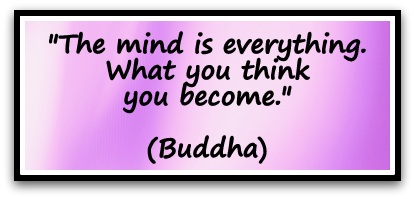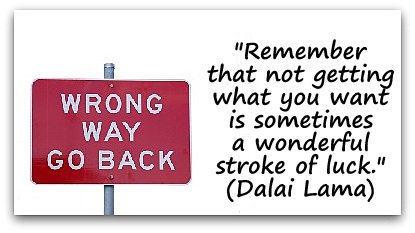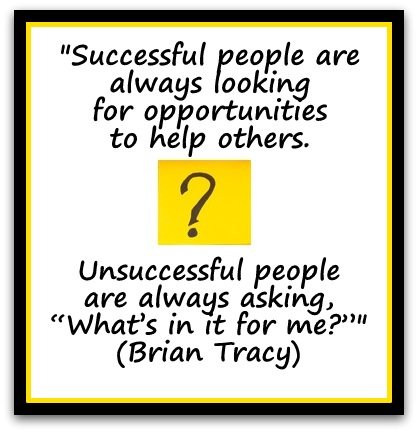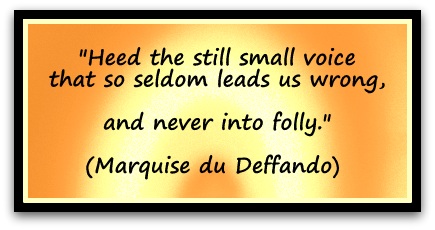Coaching Quote of the Day 26th October 2013

“The mind is everything. What you think you become.”
(Buddha)
“The mind is everything. What you think you become.” (Buddha)

“The mind is everything. What you think you become.”
(Buddha)
“The mind is everything. What you think you become.” (Buddha)
In today’s guest post Phil Manington shares how he’s using his coaching knowledge and skills with a personal experience.

by Phil Manington
I recently returned from a month’s holiday in France and was keen and enthusiastic to get back to work. Imagine how frustrated I felt when I suffered a retinal detachment in my right eye. Now I’d had problems previously with my left eye but this was serious – I needed an emergency operation and there was a real risk of losing my sight.
After the initial shock, I realised that this was a great opportunity to practise what I preach – after all, my colleague Steve and I run coaching courses which are aimed as much at people who want to coach themselves as those who want to coach others.
The approach we use is very simple, based on the principle that coaches help people to change. We use the metaphor of a journey – a successful change journey will involve a start (understanding where we are), a goal (where we want to get to) and action, with monitoring and adjustment on the way before celebrating success.
Now recovering from an eye operation might seem a slightly unusual topic for coaching – usually we are coaching someone through a change they have chosen to make – but it is proving really useful through what is a difficult period of enforced change for me.
So, two weeks after the operation, how am I doing and what lessons have I learned that are helping me in my coaching practice?
Start: This seemed obvious at first sight (as it is with many clients) but it was actually quite complex. My physical state was clear but my emotional state much less so. I was filled with conflicting emotions – feeling simultaneously optimistic, shocked, scared, impatient and irritated at not being able to drive or work. I notice how often my clients are similarly mixed up and are often very uncomfortable about that. In extreme cases, mixed feelings can generate demoralising inner conflicts that are tough to resolve.
Goal: The answer to that favourite coaching question – what do you want – also seemed obvious but was it? I wanted full sight restored. But there was a significant risk that the operation would not be successful and I seemed to have limited ability to control that. This added to all those mixed feelings which created an almost overwhelming sense of doubt and uncertainty.
So what did I really, really want? I needed to think wider than the operation – what was really important to me? What did I want to be able to do whatever state my sight was in? What was possible even if the worst happened? How did I see my life in 5 years’ time? Exploring these questions helped me particularly with the fear and uncertainty and put me in a much more resourceful state.
Two key learning points for me are:
Take action: I didn’t seem to have much choice – have the operation (or lose my sight), then follow recommendations for recovery. Normally, clients have some choices, but sometimes they feel as if they don’t and this can lead to a feeling of powerlessness. One of my favourite quotations offers help:
“Between stimulus and response there is a space. In that space is our power to choose our response. In our response lies our growth and our freedom.” Viktor E. Frankl
I couldn’t change what was happening to my eye but I could choose how I responded. For me, this is a key part of coaching – helping clients realise that only they can empower themselves. There are then two roles the coach can play:
Monitoring and adjustment: I thought I’d be well on way to recovery by now but complications mean I still have badly blurred vision, headaches and dizziness and I’m still not able to drive. So there’s not much progress to monitor, just lots of waiting and trusting in the healing magic of time.
The big lesson for my coaching is that it’s not just about monitoring progress towards any objective. It’s also monitoring emotional state, the impact on the rest of life, on relationships, etc.
Celebrating success: I’m not there yet on my own change journey but it’s useful to remember that it’s not just about waiting to finish before celebrating. Small successes on the way are hugely valuable, helping to build enthusiasm and confidence and maintain momentum. In my case, successes have included allowing others to help, resting even though I have a big backlog of work and getting round without a car. This might seem like small things for others but have been massive for me. It reminds me how important it is to put myself in the position of my client.
The overall learning for me is that, whilst there are lots of different approaches to coaching, the important principle that underpins it all centres on helping the client maintain an emotionally resourceful state throughout the whole change journey.
Phil Manington is co-founder of Suffolk Coaching Zone. He is a professional trainer, coach and management consultant, specialising in helping businesses and individuals to make successful change and achieve their full potential.
Phil currently offers training, workshops and one-to-one coaching for personal and business clients. Specialist areas include leadership skills, building self-confidence and self-esteem, and improving relationships. Follow Suffolk Coaching Zone on Facebook and Twitter.

“Don’t throw away the old bucket until you know whether the new one holds water.”
(Swedish proverb)

“Remember that not getting what you want is sometimes a wonderful stroke of luck.”
(Dalai Lama)

“Successful people are always looking for opportunities to help others. Unsuccessful people are always asking, “What’s in it for me?””
(Brian Tracy)
This week’s TED Talk clip is: Tom Wujec: Build a tower, build a team
Clip length: 6 mins 52 secs
Prefer to watch on TED.com? In that case you’ll need to click here.

“Heed the still small voice that so seldom leads us wrong, and never into folly.”
(Marquise du Deffando)

Each Monday I share the most RT’d quote(s) from the blogs twitter account over the previous week. Last week the two tweets tied with the most RT’s:
“Courage is what it takes to stand up and speak; courage is also what it takes to sit down and listen.”
(Winston Churchill)
Tweeted on 15th October
and
“Be a good listener. Your ears will never get you in trouble.”
(Frank Tyger)
Tweeted on 14th October
The second most RT’d tweet was:
“In order to succeed, your desire for success should be greater than your fear of failure.”
(Bill Cosby)
Tweeted on 16th October

Many thanks to everyone who shared the quotes above and the other quotes from last week. I know that there are various aspects that can influence if a quote attracts your attention – if you saw the tweet, personal style, if it speaks to something happening in your life at that moment etc.

(For those of you as geeky as I am and wondering what tool I’m using to measure individual RT’s this week I’ve been playing with www.twitonomy.com)